Is No Asset Bankruptcy the Right Path for You in Mississippi?
Are you seeking a financial reset but unsure where to begin? Have you heard of “no asset bankruptcy” and wondered if it could be your ticket to a fresh start? Let’s explore this intriguing option together and discover if it’s the right path for your situation.
No-asset bankruptcy is when the debtor possesses no non-exempt assets to liquidate to repay creditors. It allows individuals to discharge their debts without selling property or assets using bankruptcy exemptions. This practice area is particularly relevant for those facing overwhelming debt but needing more substantial assets to repay creditors.
In Mississippi, economic circumstances can vary. So, it’s essential to explore all available avenues for debt relief. This empowers you to make informed decisions about your financial future, whether you’re a homeowner, small business owner, or individual struggling with debt. You need to know your bankruptcy options. So, is a fresh start with no asset bankruptcy the right choice for you? Let’s find out.
Quick Summary:
- A no asset bankruptcy occurs when a debtor has no non-exempt assets that can be liquidated and sold to pay creditors.
- Debtors can retain certain assets, known as exempt assets, based on bankruptcy laws and state exemptions.
- Understanding the differences between asset and no-asset bankruptcy cases is crucial. This is true for debtors filing under Chapter 7 bankruptcy.
- Filing a no asset bankruptcy case offers big benefits. These include debt discharge, asset protection, a faster process, and relief from creditor harassment.
- You can declare bankruptcy even if you don’t have any assets, as bankruptcy exemptions protect essential belongings from being seized.
- When determining if a no asset bankruptcy is right for you, consider factors such as the severity and types of debt and your financial goals, and consult with a bankruptcy attorney for personalized advice.
What is a No Asset Bankruptcy?
In a no asset bankruptcy, the debtor has no non-exempt assets. The trustee can’t sell the debtor’s assets to pay off his creditors.
In simpler terms, you keep all your property, and your creditors don’t get repaid through bankruptcy.
To further understand the no asset bankruptcy case, here’s a breakdown of the critical points about no-asset bankruptcy:
- No-asset bankruptcy occurs when a debtor filing for bankruptcy has no non-exempt assets to be liquidated.
- Debtors can keep certain exempt assets in bankruptcy. These assets are based on bankruptcy laws and state exemptions.
- In a no asset bankruptcy case, there are no assets for the bankruptcy trustee to sell and distribute to creditors.
- Bankruptcy is usually simple in no asset bankruptcy cases. It often ends with the discharge of eligible debts without selling assets.
- Certain debts may not be dischargeable even in a no asset bankruptcy, such as tax debts and student loans.
- Debtors may still face scrutiny about their income and expenses. If they have extra income, they may have to pay under a Chapter 13 bankruptcy plan.
Can No Asset Bankruptcy Give You A Fresh Start?
Yes, no asset bankruptcy under Chapter 7 can offer a fresh start financially, but it’s essential to understand the scope of that fresh start. Here’s a breakdown of how bankruptcy can provide a new beginning for you.
- It eliminates a lot of debt by discharging unsecured debts. It gives instant relief and a chance to make a better financial plan.
- Bankruptcy exemptions let you keep essential assets safe. They provide stability and a foundation for rebuilding.
- Setting the stage for rebuilding your credit score through responsible financial habits.
Limitations to Consider:
- Not a Solution for All Debts: Bankruptcy doesn’t erase all financial obligations. You’ll still be responsible for certain debts like student loans, child support, alimony, and some tax debts.
- Credit Score Impact: Filing for bankruptcy can significantly lower your credit score. This drop lasts 7-10 years, depending on the specific credit bureau and scoring model. This can make it challenging to qualify for loans, mortgages, or even rent apartments in the short term.
- Long-Term Impact: In some cases, there might be a social stigma attached to bankruptcy, though it’s a legal process. This could hurt your personal or work relationships. However, these concerns should not outweigh the benefits of financial relief.
Bankruptcy can be a powerful tool for individuals facing overwhelming debt. It offers a chance to remove a big financial burden, find stability, and rebuild your finances. But it’s crucial to know the limits and downsides before making any decision.
Understanding Mississippi Bankruptcy Exemptions
Here are some of the Mississippi bankruptcy exemptions:
- Homestead exemption: Protects up to $75,000 of equity in the primary residence, max 160 acres. Doubles for married couples living separately.
- Mobile home: Up to $30,000 equity exemption, cannot combine with personal property exemption.
- Insurance benefits: Life insurance proceeds, disability benefits, and sure homeowners’ insurance are exempt.
- Motor vehicles: There is no dedicated exemption. However, a $10,000 wildcard exemption for personal property, including vehicles, applies.
- Personal property: Up to $10,000 exemption for belongings. Wildcard exemption can also cover vehicles if necessary.
- There are also more exemptions for personal injury awards, sale or insurance proceeds for exempt property, tax credits, and health and education savings accounts.
- Pension & retirement benefits are exempt. This includes IRAs, Keoghs, and ERISA-qualified plans. They must have been funded over a year before filing. Federal laws protect various other retirement plans.
- Public benefits: Exemptions for various public assistance programs, workers’ comp, and unemployment compensation.
- Wildcard exemption for residents over 70: Up to $50,000 exemption for any property.
Asset vs. No-Asset Bankruptcy Case in Chapter 7
In a Chapter 7 bankruptcy case, the most important factor is whether it’s an “asset” or “no-asset” bankruptcy. To further understand the two, here are the key differences between an “asset” and a “no asset” bankruptcy in Chapter 7.
Asset vs. No-Asset
- Asset Case: You have some non-exempt assets (property the bankruptcy court can sell) that could be liquidated to pay creditors.
- No-Asset Case: All your assets are exempt (protected property you can keep), and the trustee cannot sell anything.
Impact on the Case
- Asset Case
-
- The trustee sells non-exempt assets to pay creditors (though you might be able to buy some back).
- Creditors receive some portion of what they’re owed.
- No-Asset Case
-
- There’s no asset sale because everything is exempt.
- Creditors typically receive nothing. This is more favorable for the debtor.
Frequency of No-Asset Cases
- Most of Chapter 7 bankruptcies are no-asset cases, meaning most people filing Chapter 7 can keep all their property.
Why it Matters?
Knowing if your case is an “asset” or “no-asset” case helps determine the outcome:
- Asset Case: You might lose some property, and creditors may receive partial payment.
- No-Asset Case: You keep all your exempt property, and creditors receive nothing.
The difference between asset and no-asset cases highlights the need for accurate asset disclosure. It also shows the need for a good understanding of bankruptcy exemptions when filing for Chapter 7 bankruptcy.
Does Filing A No Asset Bankruptcy Case Matter?
Yes, filing a no asset bankruptcy case can be very significant for individuals struggling with overwhelming debt. This is especially true when compared to other bankruptcies or debt management. Here’s why filing a no asset bankruptcy case important:
- Debt Discharge: Eliminates most unsecured debts (credit cards, medical bills) for a clean financial slate.
- Exemption Protection: Shields essential assets (home, car, essentials) from seizure.
- Faster Process: Avoids asset sales, streamlining the legal process.
- Stops Creditor Harassment: Automatic stay halts collection calls and lawsuits.
- Rebuild Credit Potential: Discharged debt creates an opportunity for responsible credit rebuilding.
Consider a no-asset Chapter 7 bankruptcy with a qualified attorney to see if it aligns with your financial goals.
Can I Declare Bankruptcy If I Don’t Have Assets?
Yes, you can declare bankruptcy even if you don’t have any assets. This type of bankruptcy filing is called a no asset bankruptcy.
Here’s why not having assets doesn’t disqualify you:
- Focus is on Debt Relief: The main goal of bankruptcy is to wipe out eligible debts. It gives a fresh start, especially Chapter 7.
- Asset Protection: Bankruptcy exemptions protect essential belongings. They stop them from being seized and sold to pay creditors. In return, the debtor gets debt discharge.
- No Asset Liquidation: In a no-asset case, there’s no property to sell because everything is protected by exemptions. The focus is on discharging your debts, not generating funds for creditors.
How To Determine If No Asset Bankruptcy Is Right For You?
Here are some things to consider when deciding if a no-asset bankruptcy is right for you:
- The severity of your debt: If you’re struggling with overwhelming unsecured debt, bankruptcy can provide a much-needed escape.
- The types of debt you have: Not all debts are dischargeable in bankruptcy. For example, student loans and child support typically cannot be discharged.
- Your future financial goals: Bankruptcy stays on your credit report for several years. So, weighing the short-term relief against your long-term financial goals is essential.
- Consulting with a bankruptcy attorney: It is highly recommended to discuss your situation, understand the pros and cons of filing, and determine if a no-asset Chapter 7 bankruptcy is the best course of action for your financial well-being.
Whether a no-asset bankruptcy is right for you depends on your financial situation and goals. It also depends on the advice of a bankruptcy attorney. They can help you decide the best course of action for your finances.
Ready to Hit Reset? Explore the Power of No Asset Bankruptcy for Your Fresh Financial Start in Mississippi.
Are you struggling with overwhelming debt and wondering if a fresh start through no asset bankruptcy is the right solution for you? With Thomas Rollins Jr. leading the way, discovering the answer has never been easier. At The Rollins Law Firm, our team understands the complexities of financial hardship and is here to guide you through the process.
With years of experience in bankruptcy law, our team is well equipped to help you navigate the intricacies of no asset bankruptcy. Whether you’re unsure if you qualify or simply need legal advice on the best course of action, we’re here to provide the support and guidance you need.
If you want to know if no-asset bankruptcy is the right path for your situation to have a fresh start, reach out to our team at The Rollins Law Firm for a free consultation today. Let us help you find the fresh start you deserve. Don’t wait any longer to regain control of your financial well-being. Contact us now, and let’s start your journey towards financial freedom together.


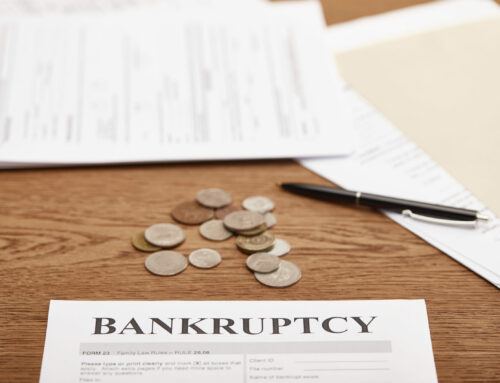
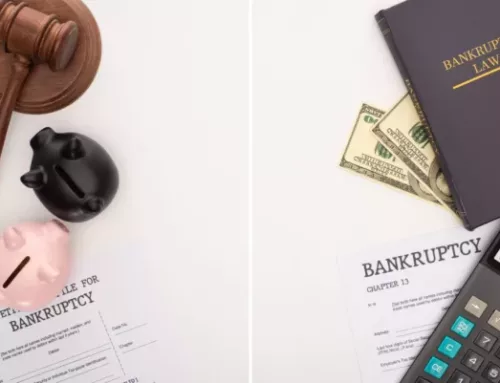
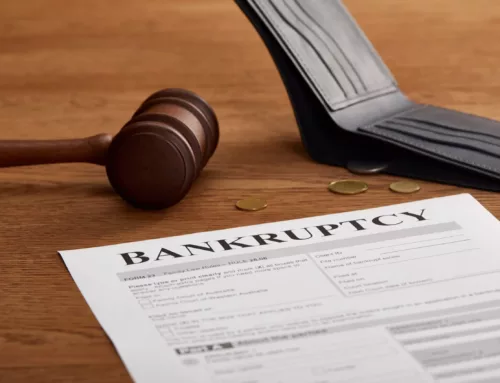
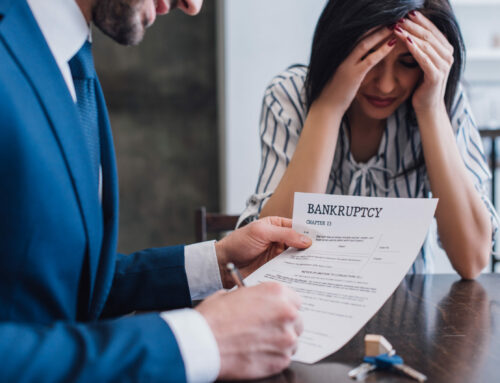
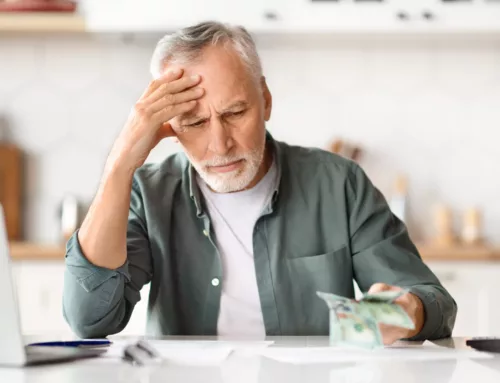

Connect with Us